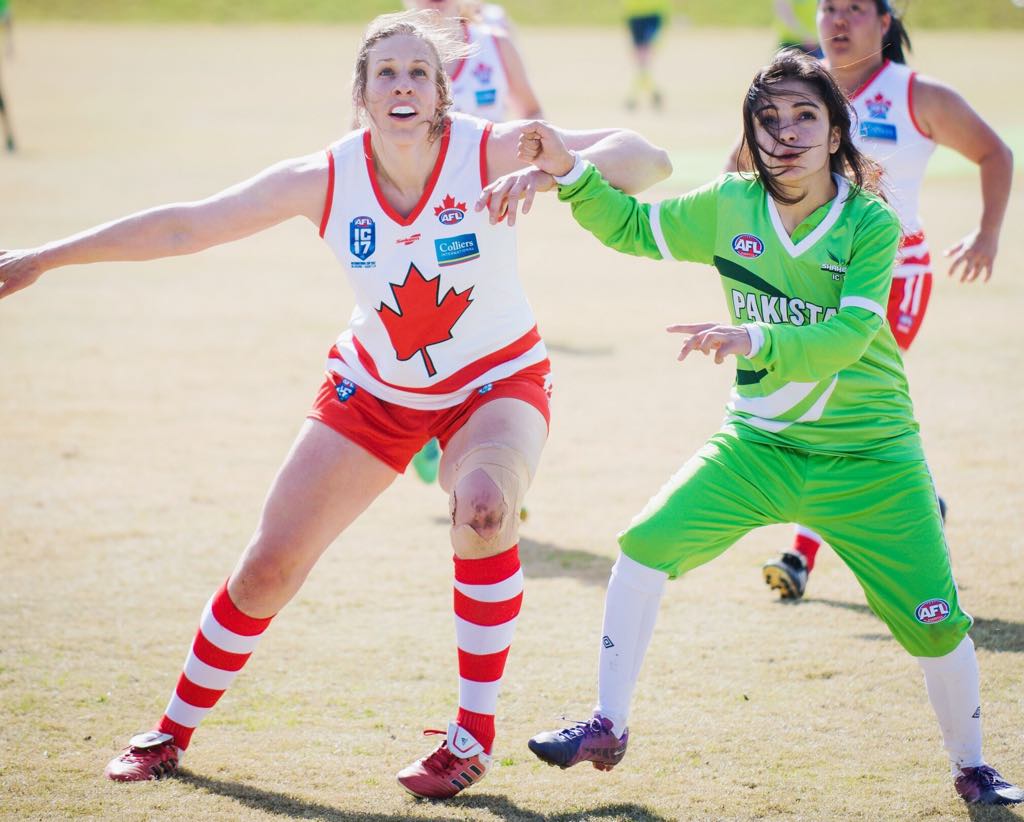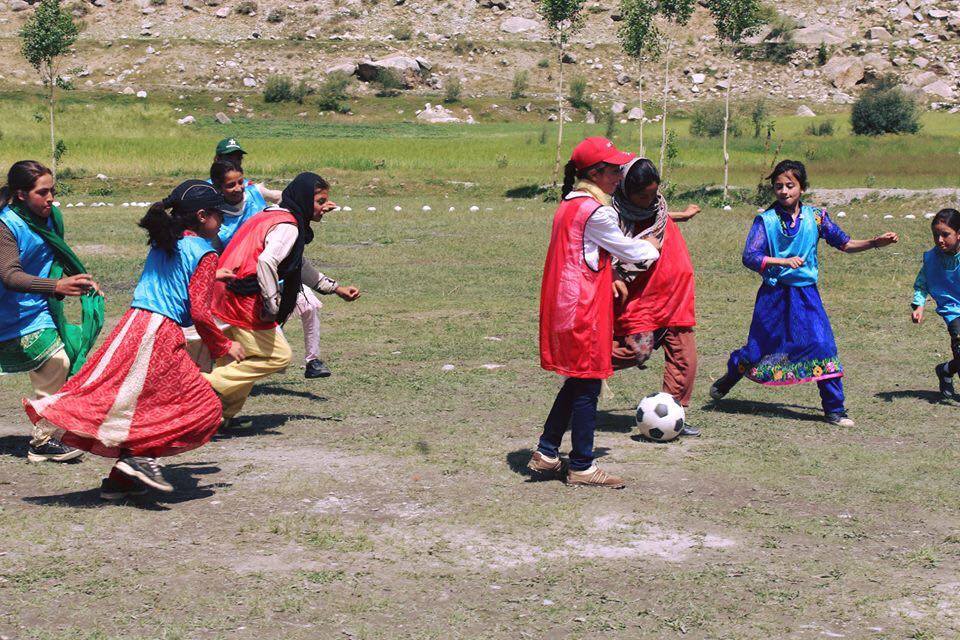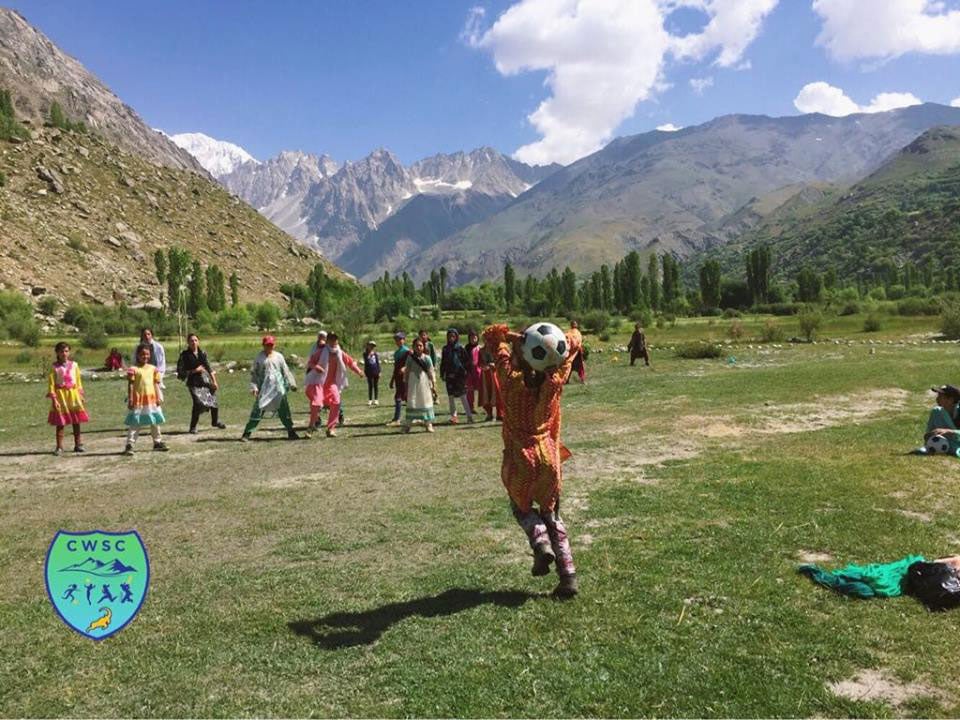It was an email Karishma Ali did not expect, and that too on a very ordinary afternoon. While scanning through her inbox, an invitation letter popped up and soon had her full, undivided attention. A multi-national sports brand was keen to have her flown to the Women’s Football World Cup, in France, as a representative from Pakistan.
Thrilled, the 21-year-old threw aside her university assignment and quickly began dialing numbers to share the news with her friends in Chitral, a valley in north-western Pakistan.
Ali has previously represented Pakistan in the Australian Football International Cup in Melbourne and the Jubilee games in Dubai.

“I am over the moon to have this opportunity to improve my game,” she tells Geo.tv, tying her laces, before a match in Karachi.
“But what makes me even happier is to see the girls from my academy in Chitral play. Now, I can take what I learned back to them.”
Last July, Ali held a week-long football camp in the Chitral valley. At first, there was resistance. Extremist groups ran a massive social media campaign discouraging, and even threatening, young girls from playing the sport. Yet, on the first day of the camp, 60 girls turned up.

Some of the girls had walked alone for four hours straight to get to the campsite. Others had come with their mothers.
While Ali lives in Islamabad, Pakistan’s capital city, the lush-green and mountainous valley is her family’s hometown.
According to the 2017 population census, there are over 400,000 people in the valley, half of whom are women. The district also has one of the highest literacy rates in Pakistan—by some estimates, over 90 per cent.

Yet, the suicide rate is alarming. A 2016 study by the Khyber Medical University Journal revealed that the risk of women committing suicide was double that of men in the valley, a large cause of which was family and marital issues. Most women would either drown or hang themselves to death, the report added.
“They call our mountains the deadly peaks and our Kunhar River, the river of death,” says Ali. “Beyond that the government has not done anything to halt these tragedies.”

There is a sense of hopelessness and helplessness among the women there, explains Dr Haroon Ahmed, a psychiatrist in Karachi. “Positive outdoor activities can play an impactful role in halting the suicidal tendencies in Chitrali women,” he said.
Sports, like football, explains Samar Abbas, a human rights activist, isn’t just merely an activity for such women. “It empowers them. It provides them with an opportunity to express themselves – something which they desperately need.”
Ali is proud to be doing just that. Helping empower women, promote gender neutrality, and challenge stereotypes in the country.
“I remember once a man told me that the clothes I wear to play football could cause an earthquake in the country,” said Ali chuckling. “He should see the girls who play in Chitral. Now, they are really shaking things up.”


